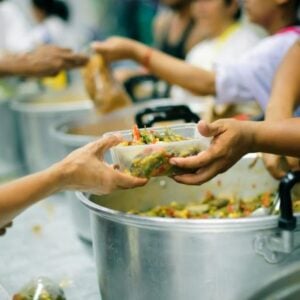The municipal markets of Panama City are more than centers for trade—they are hubs of culture, food, and community, and increasingly, spaces for innovation in waste management. These markets generate significant organic waste, yet much of it remains edible, highlighting the contrast between food loss and persistent hunger in the country. Fundación Rescate de Alimentos has been at the forefront of tackling this issue, rescuing hundreds of pounds of produce daily to provide nutritious meals for local communities.
What began as a grassroots effort has evolved into a UNDP-led pilot, supported by FAO and the UN Joint SDG Fund, called Sustainable Transformation of Municipal Markets in Panama: Circular Economy and Zero Waste. The initiative aims to reimagine markets as spaces where waste is recovered, recycled, and reinvested into the community. By targeting local farmers’ markets, which are among the largest sources of waste in Panama, the program directly links the fight against food loss with the fight against malnutrition.
The program sets clear objectives: reducing organic waste sent to landfills by 10% each month, producing 150 kilos of compost monthly, and encouraging at least a quarter of vendors and citizens to adopt recycling and composting practices. It also promotes sustainable gastronomy, creating opportunities for people to learn, taste, and connect with local produce. At the San Felipe Neri market, vendors and NGOs demonstrate how collaboration can strengthen communities, rescue food for families, and integrate circular economy principles into daily life.
Beyond technical solutions, the initiative fosters cultural and social change. Through composting workshops, culinary masterclasses, and exhibitions, it transforms markets into centers of education, innovation, and social cohesion. The project aligns with Panama’s national climate and zero-waste strategies, testing new governance models and financial incentives to ensure long-term sustainability.
Ultimately, the program illustrates how local action can address systemic challenges while contributing to broader global goals. By reducing food waste and promoting circular practices, Panama’s municipal markets advance SDG 2 (Zero Hunger), SDG 11 (Sustainable Cities), SDG 12 (Responsible Consumption and Production), and SDG 13 (Climate Action). As the pilot expands, these markets are not only feeding the city—they are shaping a vision of resilience, solidarity, and sustainable futures.







